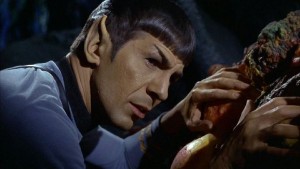In a post last week I mentioned how my childhood admiration of Diana Rigg in ‘The Avengers’ led me to study martial arts in my 20s and early 30s. This got me thinking about childhood heroes and how & why we chose people or characters to idealize. Our heroes influence the direction of our lives and, for better or worse, provide role models that compete with the messages our parents try to impart.
Overall, I think my parents succeeded in communicating the importance of art in a good life, that compassion and tolerance are more important than the winning argument, and that skepticism is an effective shield against the lure of easy solutions to difficult problems. But I have to admit that the eight-year-old me thought Emma Peel was the coolest grown-up on the planet. She was brains & brawn and, although she was described as a “talented amateur” in partnership with a professional spy, she seemed to rescue John Steed as often, or more often, than he rescued her. That appealed to the feminist in me.
I adored Mr. Spock of ‘Star Trek.’ I thought Paul Simon was the finest poet on the planet. (I can still sing all too many of his lyrics.) The Mummy movies with Boris Karloff and Agatha Christie stories made me want to become an archeologist. Of course I secretly wanted to sing like Aretha Franklin. And I tried my hand at found object sculptures painted black because of Louise Nevelson.
Now that I’m reading this, I can only conclude that I was a strange little kid. By fourth grade when I wrote my report on Thor Heyerdahl and Easter Island, I was well on the way to becoming a writer.
I’m going to ask my friends about their heroes. I think there’s something fundamental about the early connections with people (real or fictional) outside your immediate universe. I’m a little worried about kids right now. There seems to be too many celebrities famous for being famous—the Kardashians and other reality TV show stars to name a few. They don’t really DO anything. My motley crew of heroes is a group of characters doing things—important, peculiar, extraordinary things.






This is a really great topic and one that I’ve sat here and thought about now for a few minutes. If I had to pinpoint a cast of characters I connected to an aspired to be like it would have to be the Sesame Street characters or maybe the Muppets. Yet, if I look back to the books I immersed myself in, the literary hero of my youth would definitely be Alec Ramsey. What can I say? I was horse crazy.
Horse crazy—love it! That’s a great way to start life.
I think we all have that Sesame Street or Bullwinkle phase, but the books—the characters in books and the authors—leave permanent road maps on us as writers. I remember feeling that the Bronte siblings, as a group, were a romantic figure, but their collective story was too said for me to idolize. I wanted to be independent, like Emma Peel; talented, like Aretha Franklin; creative, like Agatha Christie… etc.
I’ve just begun to broach the subject with friends at home. A lot of people are slow to realize or to remember, but heroes leave echos…
Definitely Mr Spock, and the Dr Who[s], Shintaro the Samurai and Dostoyevski. I read Crime and Punishment at the age of 12 and I have never been able to go past the psychological anything!
Crime and Punishment at 12…wow. No wonder your characters are seekers and live complex lives!
Don’t you think the hero of the character—even if it’s not stated in the novel—has an impact on that character?